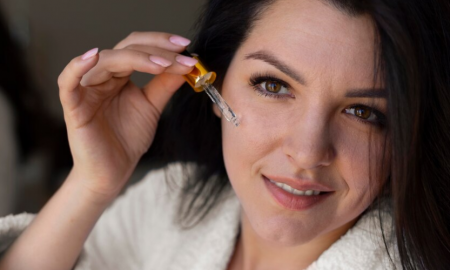
Does Adderall Cause Anxiety?

Adderall, a prescription stimulant widely used to manage ADHD, has proven effective for many people. However, like many medications, it comes with a range of side effects. One common concern is, “Does adderall cause anxiety?” Understanding this connection is crucial, especially for those who rely on the medication to function daily.
Does Adderall Cause Anxiety?
While Adderall effectively balances neurotransmitter levels, its stimulant nature can lead to some unwanted effects, particularly anxiety. Anxiety as a side effect of Adderall can manifest in various ways, including feelings of nervousness, a racing mind, rapid heartbeat, and even panic. The severity of these symptoms can differ significantly from person to person, depending on factors such as dosage, individual sensitivity, and whether there are underlying mental health conditions.

Andrea Piacquadio | Anxiety as a side effect of Adderall can manifest in various ways, including feelings of nervousness, a racing mind, rapid heartbeat, and even panic.
How Adderall Works
Adderall contains a combination of amphetamine and dextroamphetamine, two powerful stimulants that increase the release of neurotransmitters like dopamine, norepinephrine, and serotonin in the brain. These chemicals regulate mood, attention, and alertness. By enhancing their levels, Adderall helps individuals with ADHD focus better, stay on task, and manage impulsive behaviors.
Why Adderall Might Contribute to Anxiety
The mechanisms by which Adderall affects the central nervous system (CNS) are also linked to anxiety. Adderall increases activity in the CNS, leading to heightened alertness and energy levels. While these effects are beneficial for managing ADHD, they can also trigger or exacerbate anxiety in some individuals. Physical symptoms like increased heart rate, faster breathing, and elevated blood pressure—all of which are common with Adderall use—can also contribute to feelings of anxiety.
Another factor to consider is the “crash” that some people experience as Adderall wears off. This crash can leave individuals feeling mentally drained, emotionally low, and overwhelmed, which can further fuel anxiety. Additionally, misuse of Adderall, whether through taking higher doses than prescribed or using it without a prescription, can lead to dependence and increased anxiety, particularly when the drug is not available.
Managing Adderall-Related Anxiety
If you find yourself struggling with anxiety while taking Adderall, several strategies can help mitigate this side effect.
Consult Your Doctor
The first step is always to consult with your healthcare provider. If anxiety becomes a persistent issue, your doctor may suggest adjusting your dosage or switching to a different medication. Sometimes, they might also recommend incorporating anti-anxiety medications or other treatments like therapy to manage the symptoms more effectively.

Freepik | If anxiety becomes a persistent issue, your doctor may suggest adjusting your dosage or switching to a different medication.
Limit Caffeine Intake
Both caffeine and Adderall are stimulants, and when combined, their effects on the CNS can intensify, potentially worsening anxiety symptoms. If you experience heightened anxiety, it might be wise to reduce or eliminate your caffeine intake.
Practice Meditation and Mindfulness
Incorporating meditation and mindfulness techniques into your daily routine can be highly beneficial for managing anxiety. These practices help calm the mind, reduce stress, and improve your ability to handle anxiety-inducing situations. Regular practice can train your nervous system to respond more calmly during times of stress.
Maintain a Consistent Sleep Schedule
Sleep is crucial for mental well-being, especially when dealing with anxiety. A regular sleep schedule helps your body maintain a healthy circadian rhythm, reducing anxiety and improving overall mood. Aim for a consistent bedtime and wake-up time each day to optimize your sleep quality.
Address Underlying Mental Health Conditions
If you have a pre-existing anxiety disorder or other mental health conditions, these might be contributing to the anxiety you experience with Adderall. It’s essential to address these underlying issues with the help of a mental health professional. Therapy, medication, or a combination of both may be necessary to manage your symptoms effectively.
More in Mental Health
-
`
Which Peptides Are Best for Anti-Aging?
For those seeking to combat the signs of aging and maintain a youthful appearance, the world of skincare can feel overwhelming....
June 18, 2024 -
`
Celebrities with Celiac Disease – Inspirational Stories and Struggles
Celiac disease is a serious condition, and even the rich and famous aren’t immune. Many celebrities have been open about their...
June 10, 2024 -
`
How to Fix Poor Sleep Hygiene for Better Rest
Sleep is a fundamental human need, as crucial for our well-being as a healthy diet and regular exercise. Yet, many people...
June 6, 2024 -
`
5 Easy & Effective Ways of Coping With Depression
Depression is more than just feeling sad or having a bad day. It is a pervasive mental health condition that affects...
May 30, 2024 -
`
Top 10 Practical 60th Birthday Ideas For Everyone
Turning 60 is a milestone worth celebrating! Whether you are planning your own bash or organizing a celebration for a loved...
May 24, 2024 -
`
What is the Meaning of Angelina Jolie’s Back Tattoo? Explore
If you have ever caught a glimpse of Angelina Jolie’s back tattoo, you might have wondered, “What is the story behind...
May 17, 2024 -
`
Chronic Heal Pain Can Be A Sign of Cancer – Here’s How You Get It Under Control
Have you ever wondered if that nagging heel pain was something more than just wear and tear? Is heel pain a...
May 11, 2024 -
`
When to Walk Away from Someone with Mental Illness – Signs and Strategies
Deciding when to walk away from someone with mental illness is a deeply personal decision that can be challenging to navigate....
April 30, 2024 -
`
Creatine & Muscle Growth: Everything You Need to Know
Can you take creatine without working out? Absolutely, you can! But if you are looking to enhance muscle growth, hitting the...
April 27, 2024















You must be logged in to post a comment Login